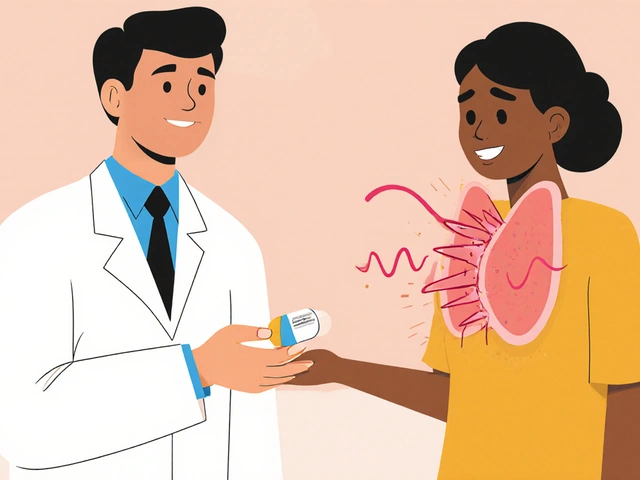Does Amlodipine Cause Cancer? The Real Answer Explained
You've probably heard a rumor that the blood‑pressure pill amlodipine might cause cancer. It’s easy to get scared when a medication you take every day gets a bad headline. Let’s cut through the noise, look at what the research actually says, and help you decide if you should keep using it.
What the studies say
Scientists have examined amlodipine in several large studies because it’s one of the most common calcium‑channel blockers. The biggest alerts came from a few observational reports that hinted at a slight increase in certain cancers, like breast or prostate. However, those studies didn’t control for lifestyle factors, other meds, or family history, so the link was weak.
When researchers ran randomized controlled trials – the gold standard for drug safety – the results were flat. Patients on amlodipine had the same overall cancer rates as those on placebo or on other blood‑pressure drugs. A 2022 meta‑analysis of over 30 trials (more than 20,000 patients) found no statistically significant rise in any cancer type.
Regulatory agencies, including the FDA and EMA, have reviewed the data and kept amlodipine on the market without new warnings. If a clear cancer risk existed, they would have required a label change or even a withdrawal.
How to decide if amlodipine is right for you
First, weigh the benefits. Amlodipine lowers blood pressure effectively and reduces the risk of heart attacks and strokes. Those outcomes matter a lot more for most people than a theoretical cancer signal.
If you have a strong family history of a specific cancer that showed up in the weak studies, talk to your doctor. They might suggest a different class of medication, like an ACE inhibitor, just to ease your mind.
Check your personal risk factors: smoking, heavy alcohol use, and poor diet all raise cancer odds far more than any blood‑pressure pill. Making lifestyle changes can lower those risks dramatically.
Finally, stay up‑to‑date. New research appears every year, and your health provider can tell you if anything changes that would affect your prescription.
Bottom line: the current scientific consensus says amlodipine does not cause cancer. The drug is safe for most patients when taken as directed. If you still feel uneasy, bring up your concerns at the next appointment – a quick conversation can give you the peace of mind you need to stick with a treatment that protects your heart and vessels.
Amlodipine and Cancer: What the Latest Research Really Says
Worried amlodipine might raise cancer risk? Here’s a clear, evidence-backed answer, what big studies show, and practical steps if you’re concerned.






